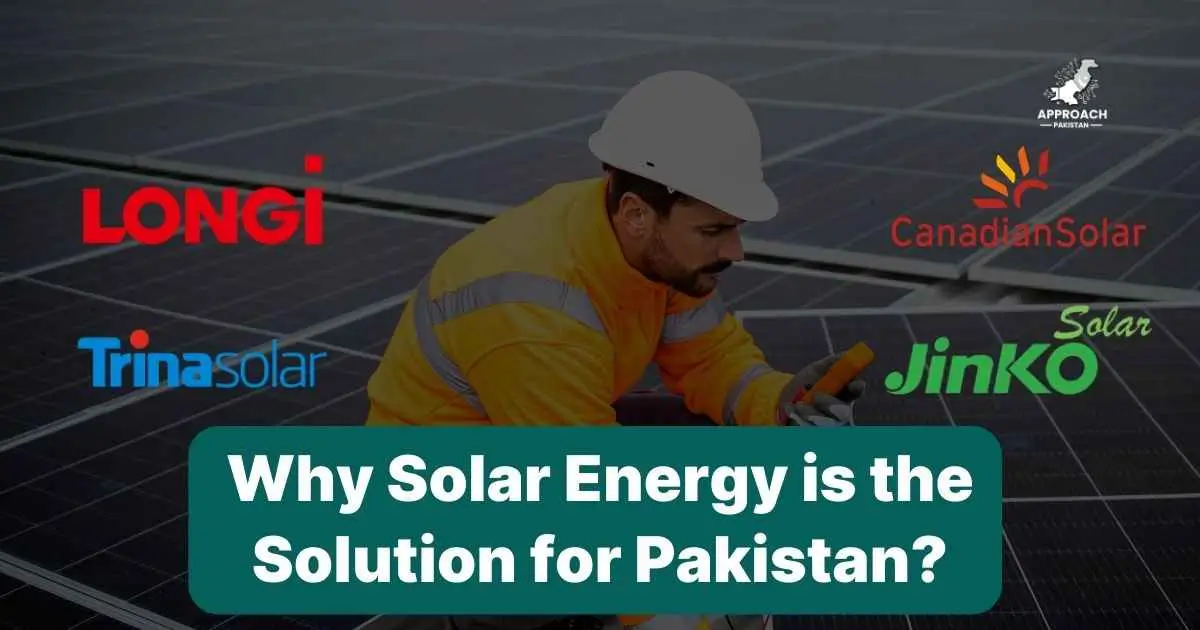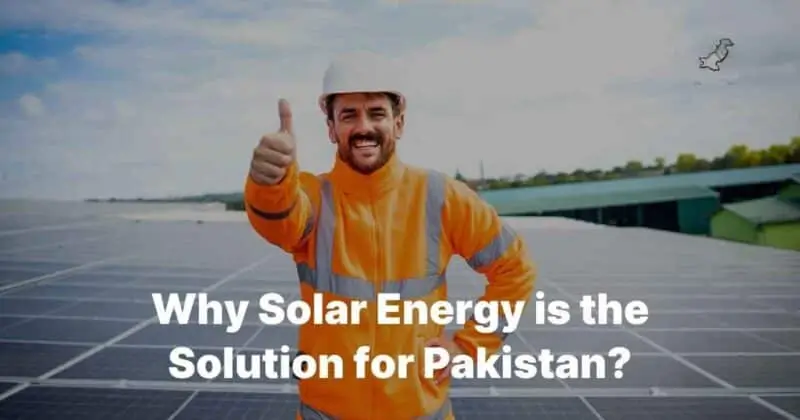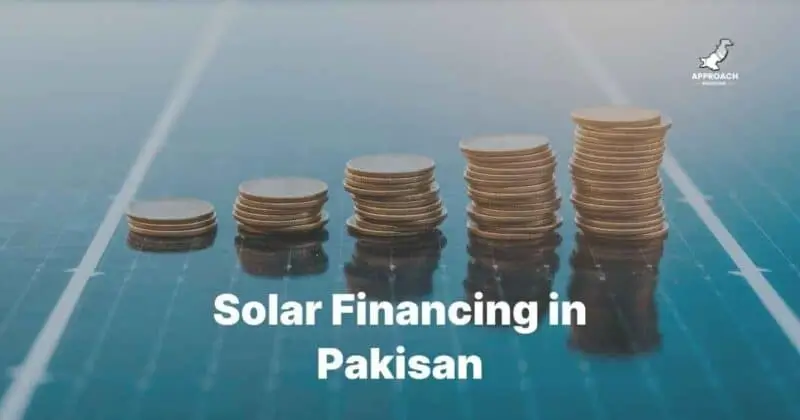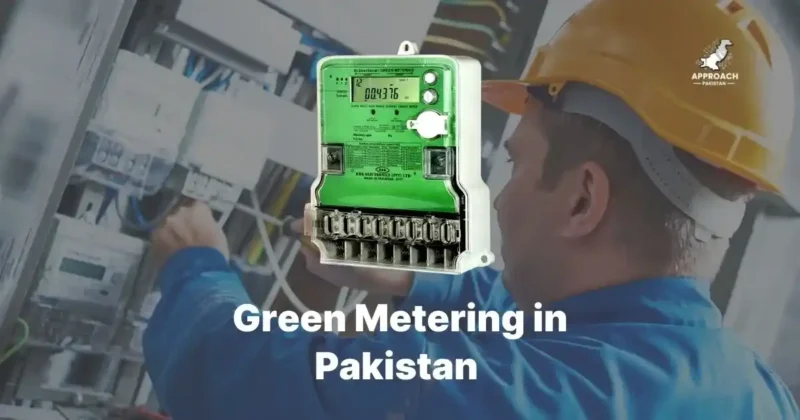Top 10 Solar Companies Pakistan 2025: Best Prices & Reviews

Pakistan’s top solar companies include Premier Energy, Alpha Solar, Sky Electric, Reon Energy, and Pantera Energy, offering comprehensive solar solutions from residential to industrial scale. These companies provide on-grid, off-grid, and hybrid systems with transparent pricing, professional installation, and reliable after-sales service across major Pakistani cities.
Introduction to Solar Energy in Pakistan
Your monthly electricity bill just crossed PKR 30,000 again. The power went out three times during yesterday’s important video call. You’re tired of living at the mercy of an unreliable grid that’s eating your budget alive.
Sound familiar? You’re not alone in this struggle.
Pakistan sits on a goldmine of solar potential that most homeowners haven’t tapped yet. With over 300 sunny days annually and solar panel prices dropping 40% since 2022, there’s never been a better time to break free from grid dependency.
This guide cuts through the confusion. I’ll show you exactly which companies deliver on their promises, what systems actually work in Pakistan’s climate, and how to avoid the costly mistakes that trap first-time solar buyers.
Pakistan’s Solar Energy Potential in 2025
Pakistan receives 2,000-2,500 kWh per square meter of solar radiation annually. That’s enough to power your entire home and sell excess back to the grid.
The government’s vision 2025 targets 20% renewable energy. NEPRA has streamlined net metering applications, reducing approval time from 6 months to 45 days. Over 25,000 Pakistani homes already generate their own power – and you can too.
Why Switch to Solar Energy in Pakistan
Cost benefits hit your wallet immediately. A 5kW system eliminates 80% of your electricity bill within the first month. With current grid tariffs at PKR 55-65 per unit, your payback period shrinks to just 2.5-3 years.
Energy independence means peace of mind. No more planning your day around load shedding schedules. Your essential appliances keep running when the grid fails.
Environmental impact matters for your children’s future. One 10kW residential system prevents 12 tons of CO2 emissions annually – equivalent to planting 150 trees.
Top 10 Solar Companies in Pakistan (2025)
Tier 1 Solar Companies
1. Premier Energy (Pvt) Limited
Premier Energy leads Pakistan’s solar market with 14% of total net-metered capacity nationwide. Their AEDB certification and tier-1 partnerships set industry standards.
Services and Specializations:
- Residential systems (3kW to 30kW)
- Industrial installations up to 4MW
- AEDB-certified net metering processing
- State Bank financing assistance
Project Portfolio:
- 2,000+ completed installations
- 4MW industrial project for US Group
- 35+ cities coverage across Pakistan
Coverage Areas: Lahore (HQ), Karachi, Islamabad, Multan, Faisalabad
2. Alpha Solar
Alpha Solar specializes in comprehensive solar solutions with over a decade of experience. Their interest-free EMI plans make solar accessible to middle-class families.
Key Strengths:
- Free consultation and site surveys
- Interest-free EMI options
- Multi-sector expertise (domestic, industrial, agricultural, commercial)
- Same-day net metering processing
Geographic Coverage: Lahore (HQ), Islamabad, Karachi, Sialkot
3. Sky Electric
Sky Electric brings smart technology to Pakistani solar market. Their cloud-connected systems provide 24/7 monitoring and predictive maintenance.
Unique Features:
- Intelligent energy management
- Lithium battery integration
- 24/7 Network Operations Center
- Global presence with local support
Target Market: Premium residential and commercial clients seeking smart solutions
4. Reon Energy
Reon Energy, backed by Dawood Hercules Corporation, focuses on large-scale solar projects. Their financial stability guarantees long-term support.
Core Strengths:
- Corporate backing ensures reliability
- Expertise in megawatt-scale projects
- Competitive financing options
- Strong industrial client base
Coverage: Karachi (HQ), Lahore, Islamabad
5. Pantera Energy Limited
Pantera Energy delivers cost-effective solutions for residential and commercial sectors. Their tier-2 positioning offers competitive pricing without compromising quality.
Value Proposition:
- Affordable pricing structure
- Quick installation timelines
- Local technical support
- Flexible payment terms
Tier 2 Solar Companies
6. Pak Solar Services
Specialization: Residential and agricultural sectors Unique Offering: Wind energy solutions alongside solar Coverage: Karachi-based with national reach
7. Buysolar.pk
Market Position: Pakistan’s first online solar company Key Feature: E-commerce platform with transparent pricing Target: Tech-savvy customers preferring online shopping
8. FB Energy (Four Brother Group)
Focus: Cost-effective solutions for carbon emission reduction Strength: Competitive pricing for budget-conscious customers Market: New entrant with aggressive pricing strategy
9. City Solar
Positioning: Young entrepreneurs driving innovation Approach: Fresh perspective on traditional solar business Target: Modern homeowners seeking contemporary solutions
10. ZI Solar
Expertise: Energy management specialization Capability: Installations of any size across all sectors Strength: Technical expertise in complex energy solutions
Comprehensive Solar Solutions Guide
Types of Solar Systems Available in Pakistan
On-Grid Solar Systems
On-grid systems connect directly to your utility grid, allowing you to sell excess power back through net metering. These systems offer the fastest payback period and work best for homes with reliable grid connection.
Perfect for families wanting to eliminate electricity bills while maintaining grid backup. Your excess generation during sunny days offsets consumption during peak hours.
System Capacity Recommendations:
- 3kW: Suitable for small homes (300-400 units monthly)
- 5kW: Medium homes (500-600 units monthly)
- 10kW: Large homes (1000-1200 units monthly)
For detailed guidance on grid-tie systems, explore our complete on-grid solar system guide and learn more about net metering benefits and requirements.
| System Size | Price Range (PKR) | Monthly Savings | Payback Period |
| 3kW | 280,000 – 320,000 | 15,000 – 20,000 | 2.5 years |
| 5kW | 450,000 – 520,000 | 25,000 – 30,000 | 2.8 years |
| 10kW | 850,000 – 950,000 | 50,000 – 60,000 | 3.0 years |
Off-Grid Solar Systems
Off-grid systems operate independently from the utility grid, using batteries to store excess energy for nighttime use. These systems provide complete energy independence but require higher upfront investment.
Ideal for areas with unreliable grid supply or homes prioritizing total energy independence. Your power stays on even during extended outages.
Battery requirements increase system costs significantly. A 5kW off-grid system needs 8-10 batteries, adding PKR 300,000-400,000 to total cost.
To discover complete off-grid solar solutions and explore battery backup options for energy independence, see our detailed off-grid system analysis.
Hybrid Solar Systems
Hybrid systems combine grid connection with battery backup, offering both net metering benefits and power during outages. These systems provide maximum flexibility but at higher cost.
Best choice for families wanting grid savings plus outage protection. Your system automatically switches between grid-tie and backup modes.
The premium for hybrid functionality adds 30-40% to system cost compared to basic on-grid installation.
For comprehensive analysis, explore hybrid solar system benefits and pricing to see how hybrid systems combine grid-tie and backup power.-60% reduction in operational costs. That’s money back in business growth instead of utility bills.
Solar Panel Technologies and Brands
Monocrystalline vs Polycrystalline Comparison
Monocrystalline panels offer higher efficiency (20-22%) and better low-light performance, making them ideal for limited roof space. Polycrystalline panels provide lower cost per watt but require more installation area.
Pakistani climate favors monocrystalline technology. Higher efficiency means better performance during monsoon season’s reduced sunlight.
Top Solar Panel Brands in Pakistan
Tier-1 Brands (Premium Performance):
| Brand | Efficiency | Warranty | Price per Watt (PKR) |
| Canadian Solar | 20.6% | 25 years | 33-35 |
| Jinko Solar | 22.24% | 25 years | 33-35 |
| Longi Solar | 21.3% | 25 years | 30-33 |
| Trina Solar | 21.5% | 25 years | 32-34 |
Value Brands (Cost-Effective):
| Brand | Efficiency | Warranty | Price per Watt (PKR) |
| JA Solar | 21.0% | 25 years | 28-29 |
| LG Solar | 21.4% | 25 years | 38-42 |
| Astronergy | 22.8% | 25 years | 30-32 |
Solar Inverters and Equipment
String Inverters vs Micro-Inverters
String inverters connect multiple panels in series, offering cost-effective solution for uniform installations. Micro-inverters optimize each panel individually, providing better performance when shading occurs.
Pakistani installations typically use string inverters due to cost considerations. Micro-inverters make sense only for complex roof layouts with shading issues.
Top Inverter Brands
Tier-1 Inverter Brands:
- Huawei: Smart monitoring and high efficiency
- GoodWe: Reliable performance and competitive pricing
- SMA: German engineering with premium features
- Fronius: Advanced grid management capabilities
Financial and Legal Considerations
Solar System Pricing and Cost Analysis
Complete system costs include panels, inverters, mounting, installation, and net metering processing. Hidden costs like additional wiring, electrical upgrades, or permit fees can add 10-15% to quoted prices.
Always request itemized quotes. Reputable companies provide transparent pricing without surprise charges.
| System Type | 5kW Price Range | Installation Cost | Net Metering Fee | Total Investment |
| On-Grid | PKR 450,000 | PKR 50,000 | PKR 25,000 | PKR 525,000 |
| Off-Grid | PKR 750,000 | PKR 60,000 | Not Applicable | PKR 810,000 |
| Hybrid | PKR 650,000 | PKR 55,000 | PKR 25,000 | PKR 730,000 |
ROI Calculator and Payback Period
Current electricity tariffs at PKR 55-65 per unit make solar extremely attractive. A 5kW system generating 600 units monthly saves PKR 30,000-35,000, creating 2.5-3 year payback periods.
Factor in annual tariff increases of 8-12%. Your savings compound over time as grid rates continue rising.
For accurate calculations specific to your usage, explore our solar system cost calculator Pakistan tool.
Net Metering and Government Policies
Net Metering Application Process
NEPRA’s simplified process requires basic documentation: electricity bill, ownership proof, and technical specifications. Approval timeline averages 45 days for residential applications.
Submit applications during low-demand periods (April-September) for faster processing. Peak season applications may face delays.
For step-by-step guidance, learn how to apply for net metering with our comprehensive application guide.
Government Incentives and Subsidies
State Bank’s refinance scheme offers 6-8% annual rates for solar financing. Provincial governments provide additional incentives – Sindh offers direct subsidies through the Sindh solar panel scheme.
Federal tax exemptions on solar equipment imports keep system costs competitive. These policies remain stable through 2025.
Installation and Maintenance
Solar Installation Process in Pakistan
Professional installation takes 2-3 days for residential systems. The process includes site assessment, structural analysis, electrical work, and system commissioning.
Quality installation determines 25-year performance. Choose certified installers with proven track records.
Installation Timeline:
- Day 1: Mounting structure and panel installation
- Day 2: Electrical connections and inverter setup
- Day 3: System testing and grid synchronization
Maintenance and Performance Optimization
Pakistani solar systems require minimal maintenance – quarterly cleaning and annual electrical checks maintain optimal performance. Monsoon season demands extra attention to prevent water damage.
Self-monitoring through inverter apps helps identify issues early. Professional maintenance contracts cost PKR 15,000-25,000 annually.
For detailed guidance, see our solar panel maintenance guide Pakistan with seasonal care instructions.
Market Insights and Future Trends
Pakistan Solar Market Analysis 2025
Pakistan’s solar market reached 1.2 GW cumulative capacity in 2024, with 300 MW added annually. Residential segment drives 60% of new installations, followed by commercial (25%) and industrial (15%).
Import duties remain at 1% for panels and 11% for inverters. Local assembly is emerging but hasn’t achieved cost competitiveness yet.
Regional Differences:
- Punjab: 45% of national installations
- Sindh: 30% market share
- KPK: 15% adoption rate
- Balochistan: 10% penetration
Future of Solar Energy in Pakistan
Battery storage costs are dropping 15% annually. Grid-scale storage will enable 24/7 renewable power by 2027. Smart grid integration will optimize distributed solar resources.
Electric vehicle adoption will drive demand for home charging solutions. Solar-plus-storage systems will become standard for new construction.
Policy focus shifts toward local manufacturing. Tax incentives for domestic production may reduce import dependency by 2026.e without generator costs. Solar levels the playing field for rural entrepreneurs.




